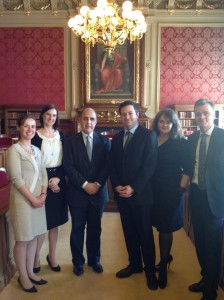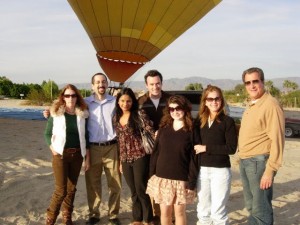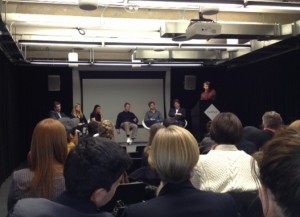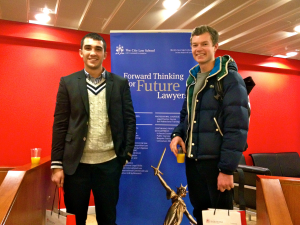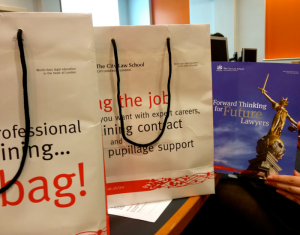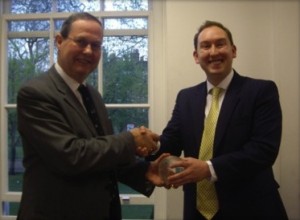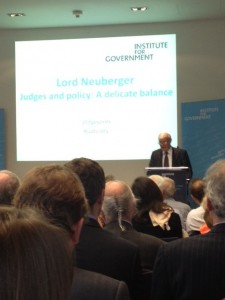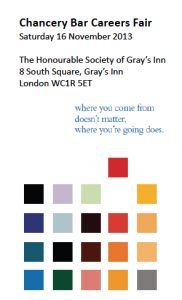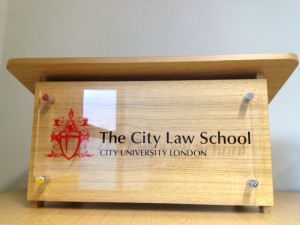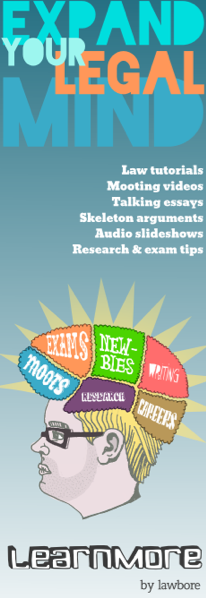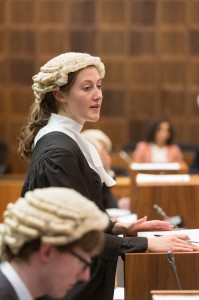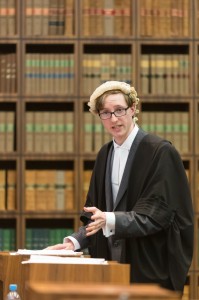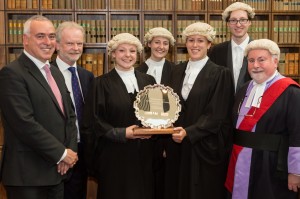Chambers evenings. Men and women in posh suits, a formal event over-flowing with intellect from Heads of Chambers, top-notch barristers, Queen’s Counsels and tenants all in the same room. One of the delightful highlights on many a GDL student’s to-do list, ranking up there with mooting and pro bono. Along with the hundred and one things we try to achieve in our short academic year.
“Just what exactly are Chambers evenings?”, pondered many of us en route to tutorials and in between mid-lecture breaks. “It’s sure to be really formal if we must put on our best suits!” exclaimed one excited peer. “And we must be on our best behaviour! And impress the barristers! And snag a pupillage! And network!” And do everything all at once it seems…..
“Relax…”, said the tutors with knowing smiles, but not giving any details away. Going with an open mind and a professional attitude seemed to be their suggestion. And that’s exactly how a mini army of us clad in a sea of somber dark greys, navy blues and black albeit perfectly coiffed and gelled up hair set off for our very first Chambers evenings at Wilberforce Chambers. Many armed with emergency lists of potential questions and witty repartee to hopefully impress the barristers.
After a resounding welcome from the Chamber Heads and a short speech about what Wilberforce Chambers was about, it was time to mingle. Or rather for us GDL students to descend upon the barristers and QCs in droves. The strategic plan, agreed many of us in advance, was to pick a barrister you fancied as your “target” and surround him or her. Which was exactly what we did. One can only wonder how the barristers felt surrounded by dozens of eager faces. And they do this every year. In the true calm manner of barristers well-seasoned in court, they were smooth and unruffled by all the attention, politely answering our questions and giving us insights as to what life as a barrister entailed. The juniors in particular, gave us lots of tips when it came to acing that all-important interview and pupillage. “I definitely want to be like them some day”, sighed many of my peers. So did everyone else in the room.
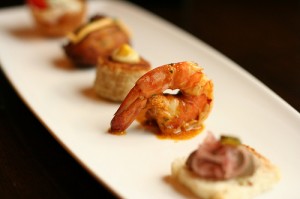
Chambers evenings...more than just canapés and good conversation! Thanks to Geoff Peters 604 for image.
As the evening progressed, things only got better and better as the ambience grew even more informal and relaxed. The conversation flowed freely and easily (one QC was entertaining us with his recounting of overseas assignments in a corner amidst loud laughter), aided in part by the endless repertoire of wonderfully tasty canapés and fine wine.
“Not bad…”, I thought with relief as my little group moved from one end of the room to the other. Indeed, good food and wine accompanied by excellent company. A rare evening to unwind without coursework and tutorials on our minds. What else could we possibly hope for? Definitely very different from what I had initially visualised. And my fellow GDL students felt the same way.
“I absolutely love Chambers Evenings now that we know exactly what they’re about!”. “Can’t believe we’re talking to these barristers like we’re friends!” But the bonus of Chambers Evenings was as one peer aptly summed up, “We even get some semblance of a balanced life!” (well, for one evening at least) by chilling out with people we hardly talk to even though we’re on the same course!” The ones we give customary nods and the usual “how’s it going?” greetings as we rush through our hectic schedule every day.
And this was repeated at the other Chambers evenings as well. The setting might have been different each time - from the posh professionalism of Wilberforce, to the formal academic setting of One Essex Court with its endless shelves of journals to the casual and down-to-earth environment of Keating, but the familiar faces of my GDL course mates remained. Giving everyone a sense of comforting companionship. That we were not alone in our search for that elusive pupillage.
Marie Tay is a former copywriter and editor who has just begun her GDL at The City Law School.







